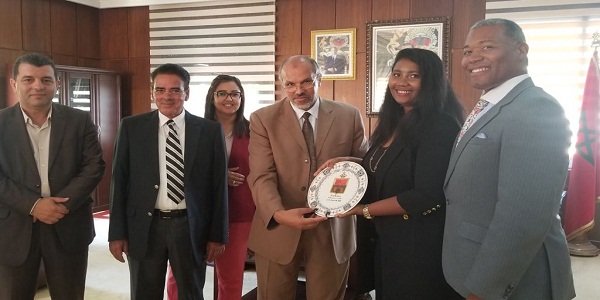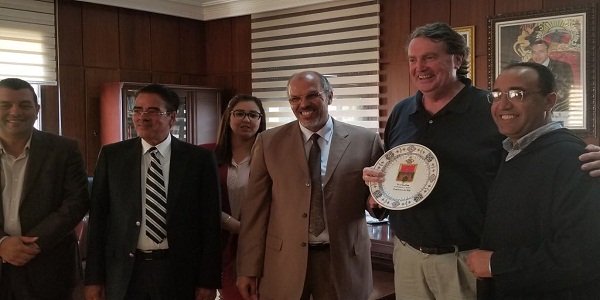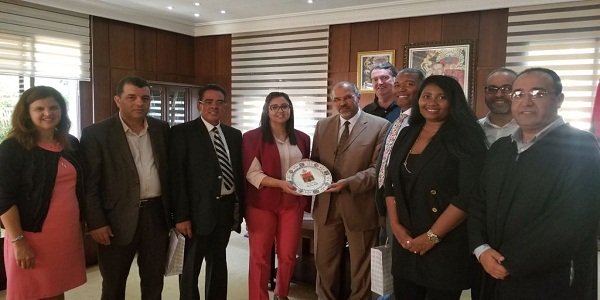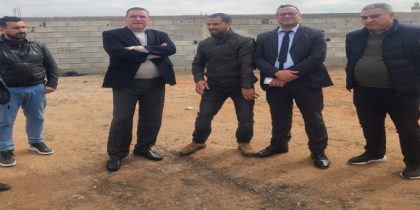The president of Salé commune receives an American delegation

The president of the commune of Salé, Mr. Jamaâ El Moâtassim, received, Friday, September 7, 2018 to the seat of the commune, an American delegation composed of Ms. and Messrs: Karen L. Daniel, Ella Faulkner, Doug Duncan and Michael Bing.
This interview took place in the presence notably of the vice-presidents of the commune MM. Rachid Douibi, Bahaeddine Akdi, Mostapha Jaouadi; as well as the general director of the services of the commune, Mr. Abderraouf Bentaleb.
The delegation’s visit to Morocco, from 3 to 11 September, is part of the US Department of State’s Professional Fellows Program (PFP); and which aims to exchange meetings between specialists and local leaders to share best practices and experiences in the area of social development and economic empowerment in the Middle East and North Africa region.
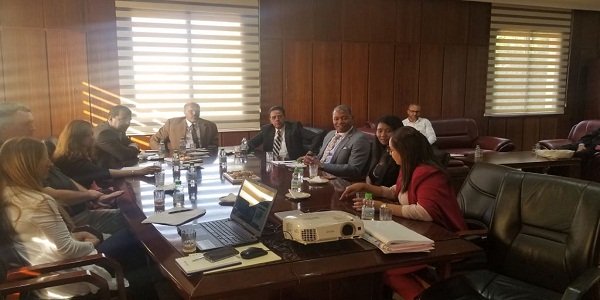
During this reception, the president of the commune welcomed the members of the American delegation, applauding the American-Moroccan secular relations, and expressing the opening of Salé and his constant desire to benefit from experiences that could contribute to the development of the city and improvement of the living conditions of its inhabitants.
Mr. El Moâtassim then briefly outlined the city’s experience in participatory democracy launched in Salé since 2003 and the most prominent mechanisms and procedures adopted by the communal council in conjunction with the new and various related constitutional and legal provisions; both through the creation of consultative committees at the level of the five boroughs making up the city and the resulting working groups, and through the creation of the Consultative Body on Parity, Equal Opportunities and Gender Approaches.
The President also underlined the particular experience of the “Thursday Concertation of Salé” as a special mechanism of consultation and public advocacy, which has accumulated a lot of experience and maturity allowing its institutionalization now, and that many recommendations stemming from it have been adopted by the municipal council and the institutions concerned; as is the case with the City’s Action Plan (CAP), the Urban Development Plan (UDP) and the subject of urban transport.
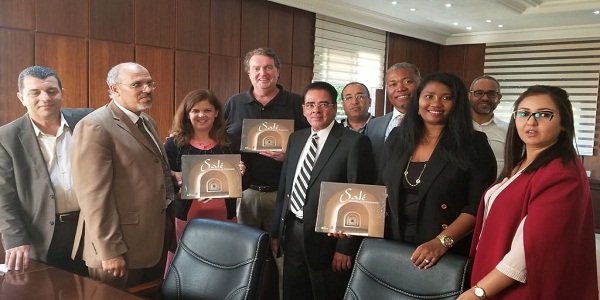
Mr El Moâtassim said that these various measures will be further strengthened in the future with the creation of the “House of Concertation in Salé”, a special area encompassing various advisory activities and related training workshops.
In addition, the communal president mentioned the ambitious projects planned within the framework of the CAP to meet the different needs of the city and its inhabitants in the vision of a strategy aimed at the consecration of the repositioning of the city on the local and national level. . He also highlighted the preparation of the new UDP and its importance as a guiding document for urban planning.
The Chair also noted the importance and diversity of the city’s historical and cultural heritage and its sporting influence, including basketball and martial arts; which will have to be valorized through the rehabilitation of the old Medina, the inauguration of the museum of musical instruments within it, as well as the reorganization of the covered Hall Fathallah El Bouâzzaoui in accordance with international standards.
In their various interventions, the members of the American delegation expressed their warm thanks for the warm welcome extended to them by the Chairman of the Board, as they noted their appreciation of Salé’s remarkable experience in the field of participatory democracy. and the commitment of the municipal council to strengthen the involvement of citizens in all matters relating to local development. They thus raised a series of information on the modalities of implementation and control of multilateral programs and projects, their financing and the donors concerned, in addition to the major concerns related to the new urban development plan. Similarly, they presented some American experiences concerning the promotion of small enterprises through a compulsory quota of subcontracting, as well as the imperative nature of the employment of a fixed rate of local labor; in addition to programs that stimulate entrepreneurship among youth and children.
